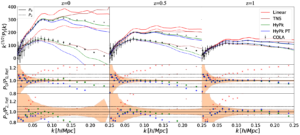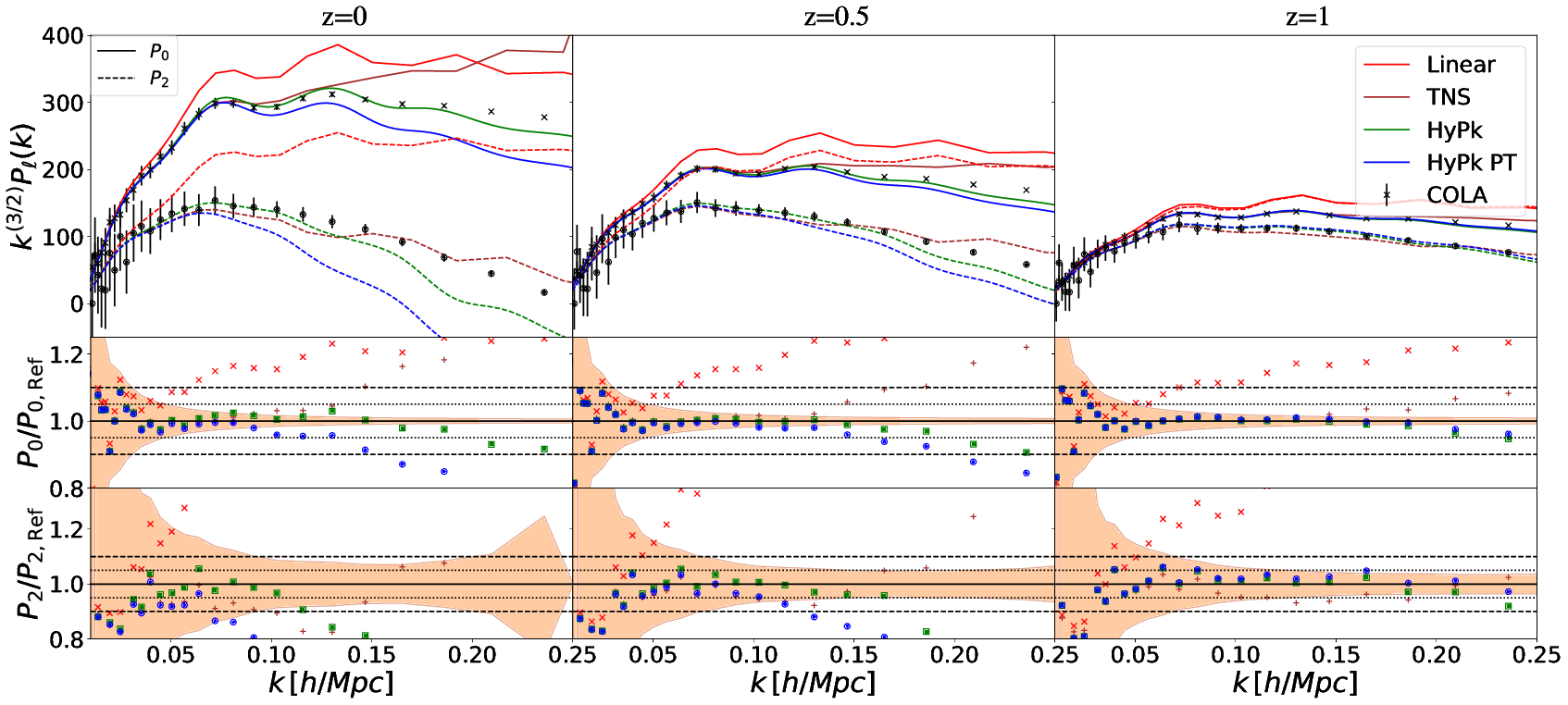Hybrid Pl(k): general, unified, non-linear matter power spectrum in redshift space
Abstract
Constraints on gravity and cosmology will greatly benefit from performing joint clustering and weak lensing analyses on large-scale structure data sets. Utilising non-linear information coming from small physical scales can greatly enhance these constraints. At the heart of these analyses is the matter power spectrum. Here we employ a simple method, dubbed "Hybrid Pl(k)", based on the Gaussian Streaming Model (GSM), to calculate the quasi non-linear redshift space matter power spectrum multipoles. This employs a fully non-linear and theoretically general prescription for the matter power spectrum. We test this approach against comoving Lagrangian acceleration simulation measurements performed in GR, DGP and f(R) gravity and find that our method performs comparably or better to the dark matter TNS redshift space power spectrum model {for dark matter. When comparing the redshift space multipoles for halos, we find that the Gaussian approximation of the GSM with a linear bias and a free stochastic term, N, is competitive to the TNS model.} Our approach offers many avenues for improvement in accuracy as well as further unification under the halo model.


